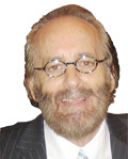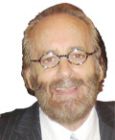DSM
Reboot Diagnosis: DSM-5 Goes Live, Nascent Movement Arises
A new open global movement emerges to re-think and re-design diagnosis
Posted December 3, 2012
The current state of psychiatric and psychological diagnosis is in flux. The so-called "bible" of diagnosis, the Diagnostic and Statistical Manual (DSM) of the American Psychiatric Association (ApA) has been revised and the revised version, DSM-5, has on December 1, 2012, been approved by the ApA Board of Trustees, with publication scheduled for May 2013.
The DSM has always had a context of controversy about it, particularly as each of the previous versions were in the throes of revision.One of the most famous controversies concerned the proposed inclusion of homosexuality as a disorder. A battle ensued over that in the 1970's and it was finally removed. Various proposed disorders related to women have come and gone. Other controversies have swirled around the transparency of the process by which the DSM gets revised, and who is invited to the table. The science involved in the DSM has always been under a checkered flag, with such issues as the quality of the empirical bases for decisions, reliability and validity of evidence, replicability, reductionism, the issue of categorical versus dimensional approaches, the medical versus psychosocial/cultural models, the role of Big Pharma and whether it may have any influence on the DSM, the role of ethnic and cultural variations in the expressions and understandings of distress and illness and how these get factored into the DSM, to mention a few contentious issues.
In 2011 something momentous in the professional and public discussion of diagnosis happened. The Society for Humanistic Psychology (Division 32 of the American Psychological Association, APA) entered the fray. Its leadership became concerned about some of the revisions being proposed by the DSM-5 Task Force. For example, there were proposals to expand categories and disorders (a process I call "the sickening of society") and the creation of new diagnostic categories with weak scientific support.The Society's leaders were especially concerned about certain new diagnostic categories where the lowering of diagnostic thresholds could result in hundreds of thousands of individuals, including young children and the elderly, being inappropriately diagnosed with a disorder and treated with powerful psychiatric drugs. The Society leadership was also concerned about the apparent primacy of biological models in the proposed DSM-5 and the seeming lack of emphasis on psychosocial factors.
Because of the foregoing concerns, in October 2011, the Society, on a petition website, published "An Open Letter to the DSM-5 Task Force and the American Psychiatric Association," where mental health professionals could sign and express their concerns to the ApA and its DSM-5 Task Force over the proposed revisions. This act of an APA Division creating such a petition on an easily accessed website to encourage helping professions to take a stand on a major and timely issue of practice and science, is largely without precedence in APA's or psychology's history. The petition started out modestly with a few hundred signatories, but exploded into a count of almost 14000 individual signatures, and more than 53 other professional organizations from around the world signing as organizations (16 APA Divisions signed).Some major non-APA organizations that signed included the British Psychological Society (approximately 50000 members), several Divisions of the American Counseling Association, the Association for Black Psychologists, the Association for Women in Psychology, the National Latina/o Psychological Association, and many others.
Clearly the petition struck a chord. But not at the American Psychiatric Association. There it seemed to fall on essentially deaf ears. They accorded it little to nothing, declining a major request of the petition to submit the proposed DSM-5 to completely independent scientific review. This review could have highlighted the strengths and weaknesses scientifically, and could have provided recommendations for strengthening and improving the revision of this so important health document.
The Society (APA Division 32) had created a Committee (the "Open Letter Committee"), chaired by the Society's then President Dr. David Elkins, of which I was a member, with other members Drs. Jon Raskin, Dean Brent Robbins, and Donna Rockwell, with consultant Sarah Kamens, to create the petition and "open letter". This Committee considered a range of possibilities to influence the DSM revision, or perhaps take a fresh look at the very nature of diagnosis itself.
Interestingly, one of the most vocal critics of the DSM-5 has been psychiatrist Dr. Allen Frances, who chaired the DSM-IV. He has an ongoing Psychology Today blog essentially directed against aspects of the revision, and frequently blogs on the topic for Huffington Post. In a recent Psychology Today blogpost, he noted that two members of the DSM-5 Personality and Personality Disorders Work Group resigned in April 2012 because they "...considered the current proposal to be fundamentally flawed..." with a "...truly stunning disregard for evidence." Further, the two members stated "...the proposed classification is unnecessarily complex, incoherent, and inconsistent. The obvious complexity and incoherence seriously interfere with clinical utility." (Frances, 2012).
Given the clear disinterest on the part of ApA, our strategy concerning diagnosis has evolved. The petition with the individual and organizational signatories, and the extensive media coverage including national TV and radio, New York Times, USA Today, Washington Post, Chicago Tribune, and many more worldwide, which our efforts have produced, has created a nascent mental health movement directed at better more valid approaches to diagnosis. Add to the list of concerns above the fact that the DSM is owned and controlled by one professional association, the ApA, despite its widespread use by other professions, many of whom, I note, signed the petition. The role of the DSM in insurance coverage alone involves the practices of many non-psychiatrists. The access to psychological and mental health services across the American landscape is provided more by non-psychiatrists than psychiatrists--for example, psychologists, social workers, counselors, marriage and family therapists, etc. It was our view that those most likely to provide services should have an important role in the development of any diagnostic system, perhaps a potential example of practice-based evidence!
Our Committee's strategy at this point is to reboot the whole program of diagnosis, to re-examine the very fundaments of the concept of diagnosis, and to assess what might be involved in creating an alternative approach to those presently available, creating a blueprint, if you will. Any new or evolved approach would have to meet, in my view, more rigorous scientific criteria, responding to what I call "The Seven Sins of Psychiatric/Psychological science," (Farley, 2012), incorporate the cultural/social/relationship/humanistic side of our lives, and involve all the principal disciplinary and professional stakeholders in the U.S and internationally.Given the relentless criticisms of the DSM over several decades and the failure to take some of these serious criticisms into account, our Committee (which now consists of myself and Jon Raskin as co-chairs, and members Dean Brent Robbins, Donna Rockwell, Krishna Kumar, Sarah Kamens, and student consultant Erinn Chalene Cosby) has decided to convene with international collaboration an International Ongoing/Online Summit on Diagnosis (or similar title). Among other things we anticipate bringing together scholars and practioners globally and from across the various fields involved in diagnosis to address the Olympian task of an improved approach or approaches to what we have now.We feel the psychological health and well-being of every distressed individual requires a valid and humane approach to diagnosis, and the Zeitgeist is ready. Stay tuned.
References
Farley, F. (2012, March 31). The seven sins of psychiatric/psychological sciences and the DSM-5. Symposium presentation, Society for Humanistic Psychology Annual Conference, Pittsburgh, PA
Frances, A. (2012). Two who resigned from DSM-5 explain why. Psychology Today.com. Retrieved from http://www.psychologytoday.com/print/100752
The author thanks the other members of the Society for Humanistic Psychology "Open Letter Committee", especially David Elkins, and the new "Diagnostic Summit Committee" for their outstanding contributions to the developments noted above. An earlier version of this piece appeared in The Pennsylvania Psychologist.




